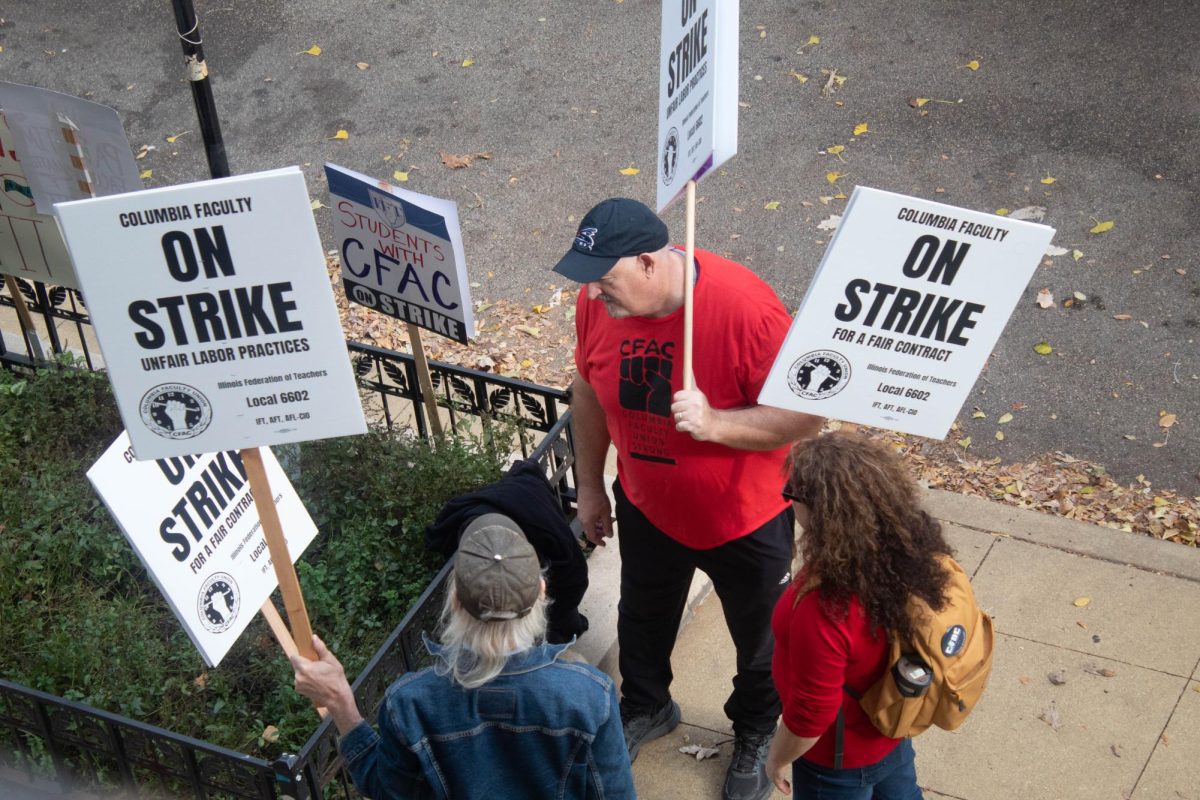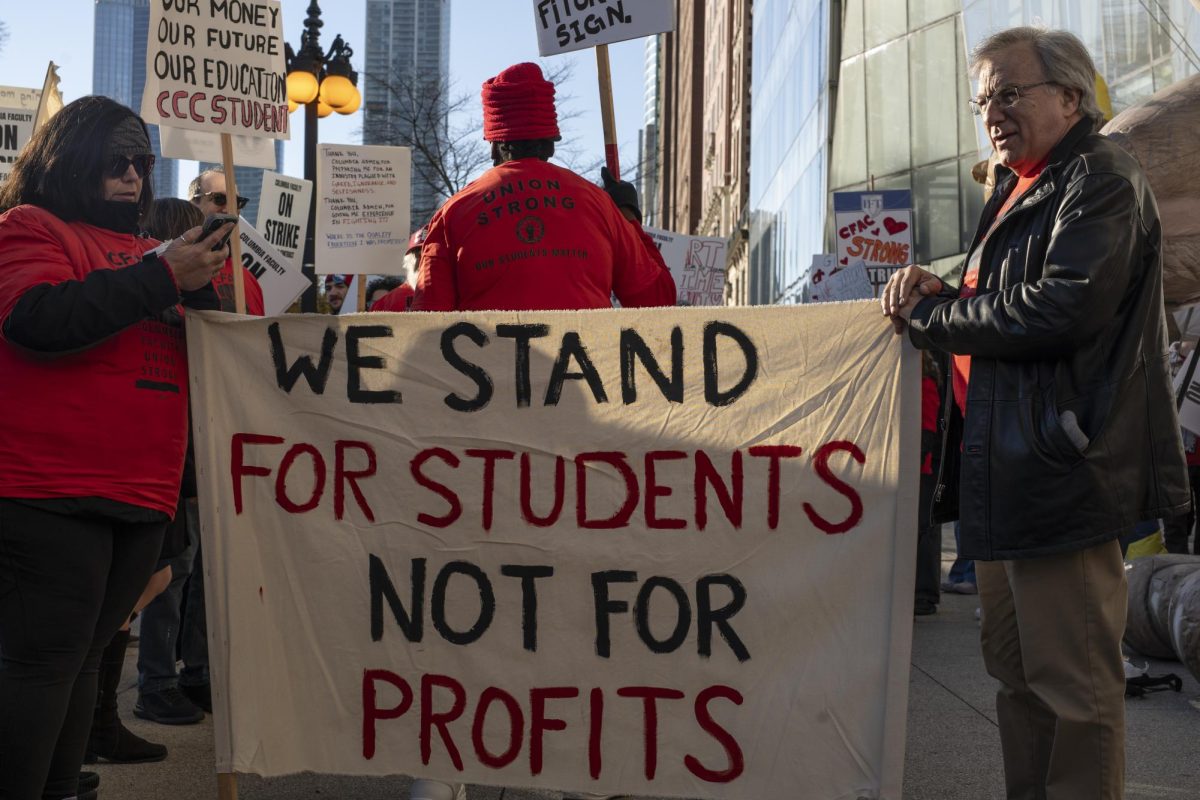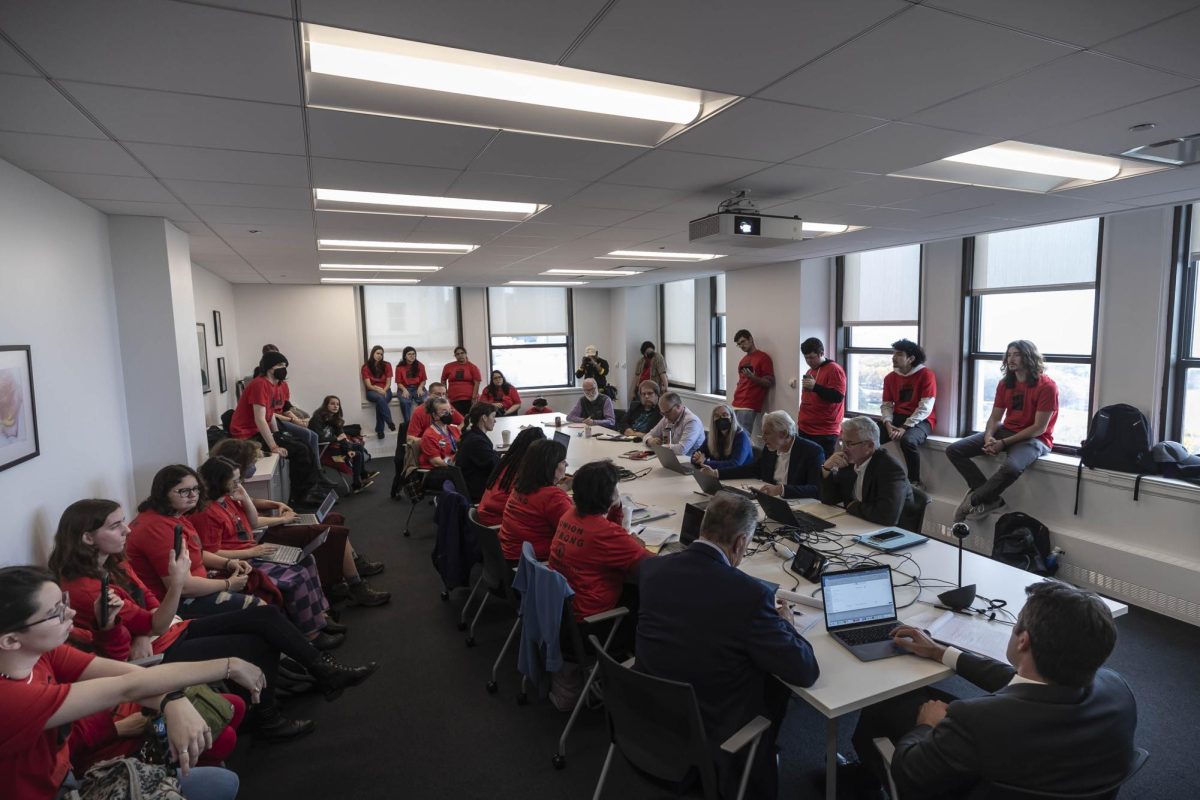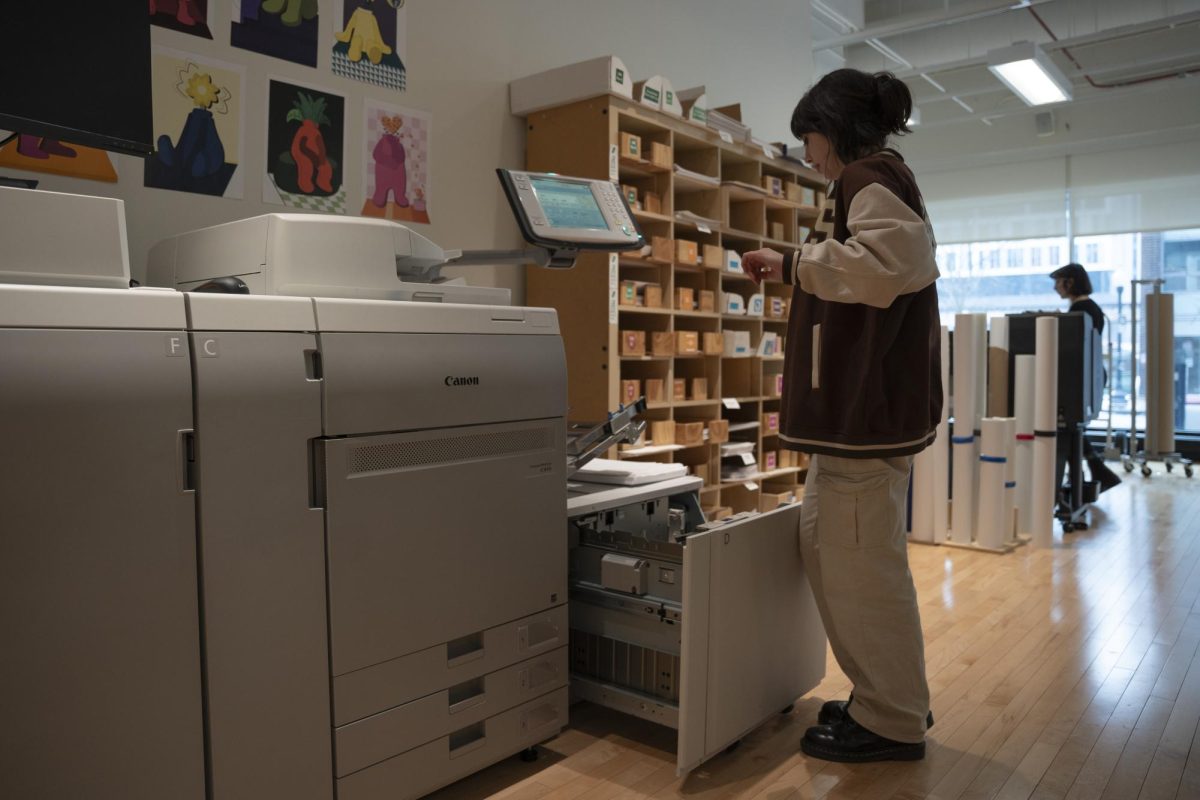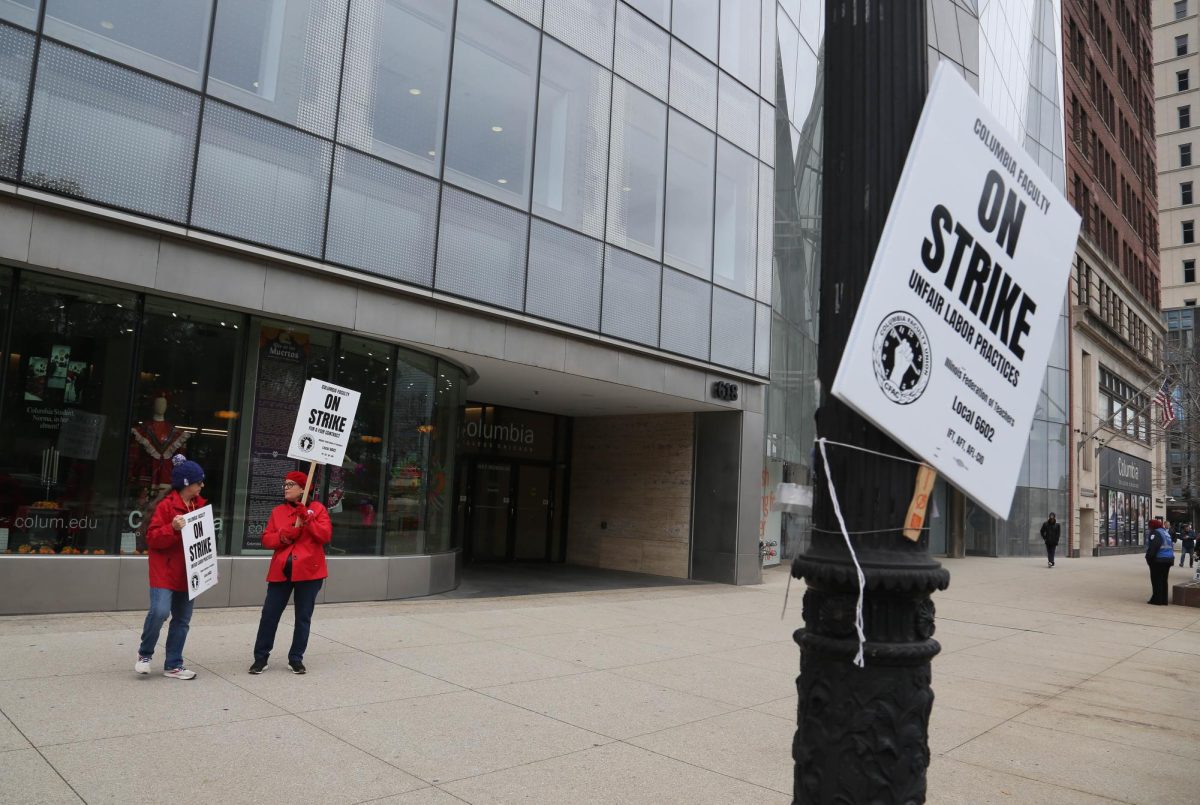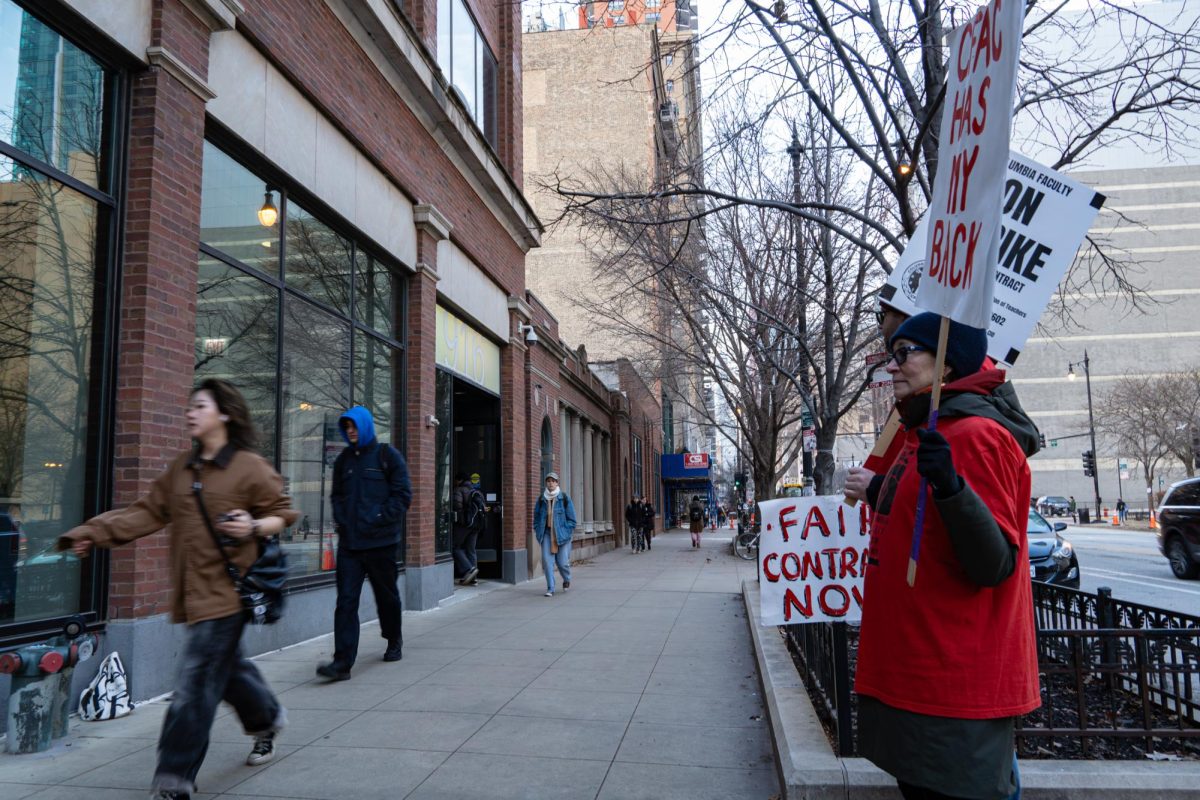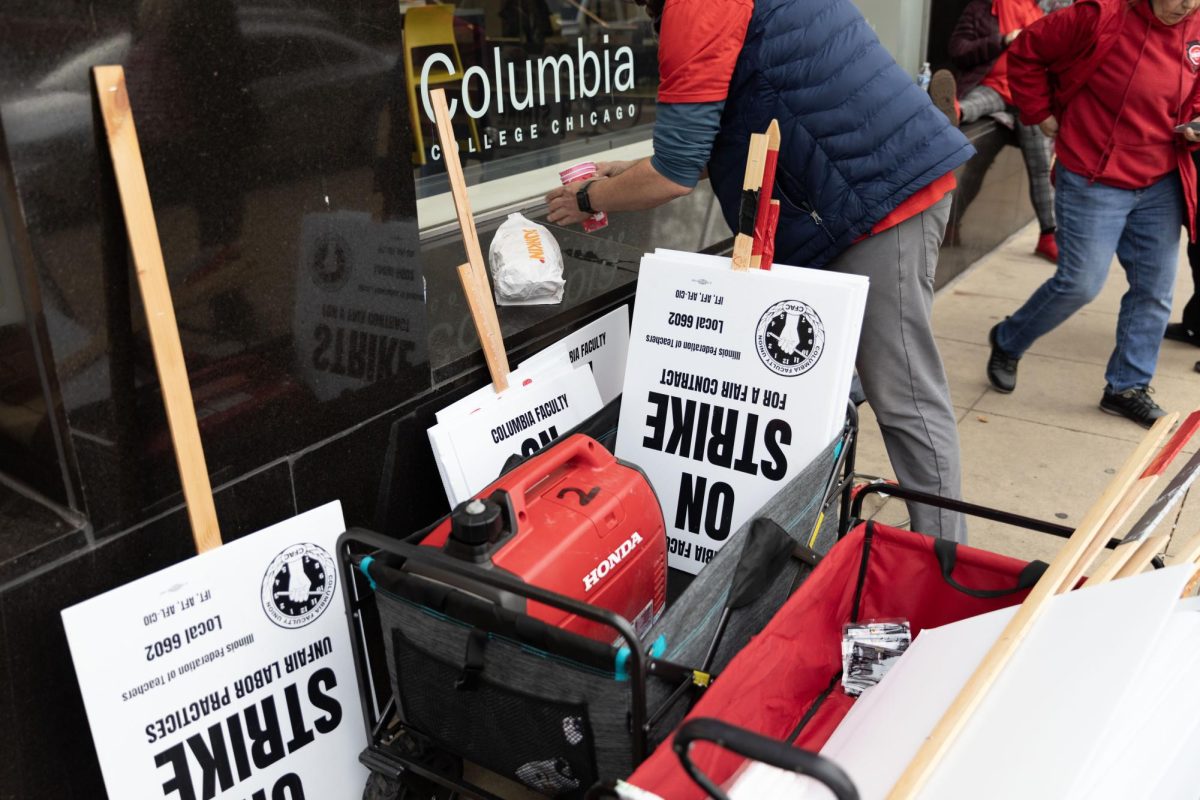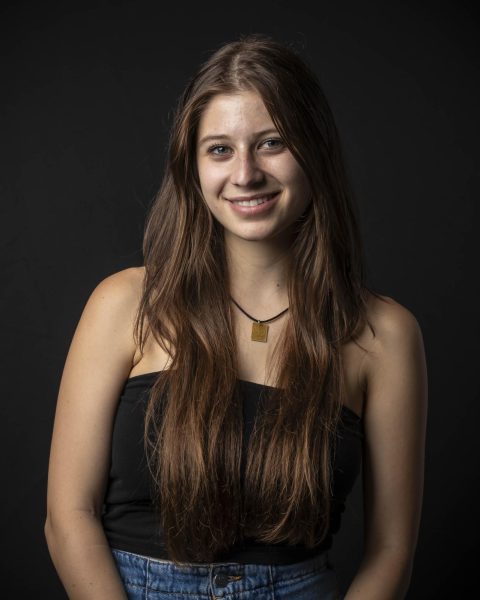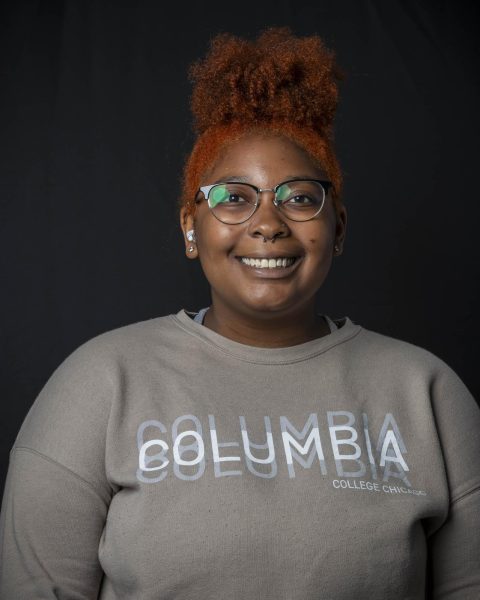As the part-time faculty union strike heads into a second week, many students are still wondering how to navigate going to class – or if they should go at all.
Students have received conflicting information from the college and the union about what is expected of them, adding to the confusion.
“It’s very confusing where the truth is supposed to be coming from – and I think a lot of other students are very confused as to what the truth is,” said Layla Reif, a first-year film and television major. “I feel like there’s no clarification because you’re getting two sides of the same story that are opposing sides.”
Three of her classes taught by part-time faculty are canceled until further notice while her other two classes taught by full-time faculty are being held on Zoom. Students are receiving a lot of “conflicting stories from the faculty, and then from the administration,” said Reif, who also serves as a Student Government Association senator for the Cinema and Television Arts Department.
Some full-time faculty or department chairs are covering the classes that have been canceled by striking faculty, an action the union objects to and considers a violation of “academic freedom.” The union has asked students to report substitute teachers.
During a two-hour Zoom call late Sunday, Nov. 5, which had over 300 people at one point, Diana Vallera president of the Columbia College Faculty Union, answered questions from students on how to navigate going to class, on if they should register for the spring semester and what students can do to organize on behalf of the union.
The union asked students to get their parents involved by emailing the President’s Office to request a tuition refund for the class time lost during the strike.
Senior Associate Provost Nate Bakkum said the college can arrange for substitute instruction and issues grades “in a class where the assigned instructor is unavailable, unable, or unwilling to complete their assignment for whatever reason. This is not a violation of the instructor’s academic freedom.”
Academic freedom focuses on faculty’s freedom to pursue any relevant subject matter in their teaching and research without fear of interference or repercussions. It is primarily understood as a free speech right. The college’s Statement of Policy on Academic Freedom, Faculty Status, Tenure, and Due Process covers academic freedom.
Since the strike started Oct. 30, many students have told the Chronicle that they plan to skip class to support the strike. Others aren’t sure if class is being held.
The Chronicle reviewed several dozen email and Canvas messages students shared from their part-time instructors, and the information and guidance varies.
Many part-time instructors, using a template, told students that class was “canceled until further notice.” They directed students with questions to the union’s website or Instagram account, or in one case, to “the appropriate party,” without specifying who that might be. A part-time instructor told students they could wear red to support the strike.
One instructor told students a full-time instructor would fill in. Another said if the strike went on for more than a week, they would reassess the decision not to hold class. “I hope the strike lasts a few days or less,” the instructor wrote. “The whole purpose of this strike is to put pressure on the administration to make some concessions. If this is what happens then we’ll just miss one class period and push everything on our schedule back a week.”
Bakkum said under normal circumstances, a faculty member has the autonomy to cancel a class session for limited reasons such as illness or to replace a class session with another activity for the class as long as they take steps “to ensure that students’ learning and course progress is not interrupted.”
“Throughout this uncertain moment, we have asked faculty and department chairs to extend as much grace to our students as they are able,” Bakkum said. “We understand students are negatively impacted by the strike, and our goal is to return to teaching and learning as quickly as we can – either through an end to the strike or through substitute teaching and other learning activities. We do not wish to penalize students during this interruption; rather, we wish to get back to the core work of the college and focus on the professional goals of our students.”
Sophomore film and television major Breanne Walker says the information being put out from both faculty and administration are confusing for students because “everyone was kind of saying something different.”
“My concern is that it’s not going to start back up,” Walker said. “I’m worried that this is gonna go for much longer than they’re saying that it might. … I’ve spoken with my parents about it, and I’ll have to transfer.”
One instructor messaged students last week telling them not to show up for class “until you hear from me.”
“We understand the college is sending conflicting messages,” the instructor wrote. “There are no requirements in place for this course while we are on strike. This includes any attendance requirement.”
Bakkum said if an instructor is unable to teach for an extended period of time or withholds their teaching, the college has “the right and a duty” to step in to preserve students’ academic experience.
“Some department chairs have already begun assigning substitute teachers to classes in which instructors are striking, and this practice will continue,” Bakkum said. “This return to learning is essential in all of our courses, and it is especially important in skills-based areas and in courses connected to longer production timelines.”


